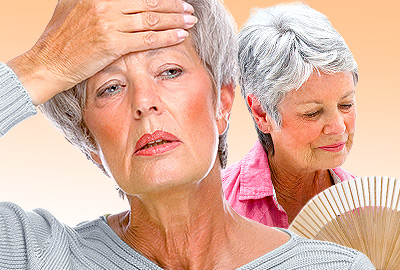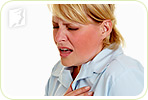
Hot flashes are experienced by most women going through menopause. They are characterized by feelings of intense heat that spread throughout the body, usually most strongly felt in the head and neck areas and accompanied by sudden or profuse sweating. Hot flashes can last anywhere from a few seconds to several minutes.
Although their exact cause is unknown, hot flashes are thought to occur as a result of hormonal imbalances that result from declining estrogen levels. Read on to learn three things you should not do when fighting menopausal hot flashes.
Do Not Decrease Physical Activity
Exercise is not a cure for hot flashes, but it does help with alleviating stress, anxiety, and depression, which can trigger or worsen hot flashes. Women who do not engage in physical activity are at an increased risk of menopause-related symptoms like hot flashes, and they often experienced lowered self-esteem. As little as 30 minutes of physical activity can reap huge psychological benefits while stabilizing estrogen levels, and it can also help in the prevention of osteoporosis.
Do Not Deviate From Your Diet
Eating a diet rich in soy could be useful in preventing hot flashes. This ubiquitous legume contains genistein and daidzein, whose estrogenic properties help to curb hot flashes. In addition to eating soy, women can benefit from eating more calcium-rich, magnesium-rich, and fiber-rich foods such as fresh vegetables and whole grains.

During menopause, it's also important for women to drink plenty of water - experts recommend at least two liters per day. Water replaces fluids lost due to excessive perspiration during a hot flash episode and can prevent or reduce the number of hot flashes.
Don't Be Afraid to Consult Your Doctor
If you are experiencing severe hot flashes that are long or unbearable, heavy night sweats, or are in general concerned about your menopause symptoms, don't be afraid to talk to a physician about how you're feeling. Your doctor can assess your symptoms and make recommendations for treatment, which may include herbal or vitamin supplementation.
Many women are turning to natural alternatives such as vitamins and herbs to replace hormone therapy for treatment of hot flashes. Talk to your doctor about the benefits of vitamins, and you may find an effective way to treat debilitating flashes. For example, women taking vitamin E supplements have reported mild relief from hot flashes. Doctors advise not exceeding dosages greater than 400 international units (IU), as studies have suggested that higher dosages may increase the risk of cardiovascular disease.
Recommendations
If your hot flashes are preventing you from completing daily tasks, talk to your doctor about treatment options. Click on the following link for more information about treatments for hot flashes.
Sources
- Miller, H. & Li, R.M. (2004). Measuring Hot Flashes: Summary of a National Institutes of Health Workshop. Conference report. Mayo Clinic, 79.
- Sikon, A. & Thacker, H. (2004). Treatment for Menopausal Hot Flashes. Cleveland Clinic Journal of Medicine,71(7).
- Weir, E. (2004). Hot flashes ... in January. Canadian Medical Association Journal, 170(1). Retrieved from http://www.ncbi.nlm.nih.gov/pmc/articles/PMC305309/


